VOLUNTEERS NEEDED TO REPRESENT OUR CHURCH
The organizers of the Concho Christmas Celebration have asked our parish to be hosts for the Christmas light tour. If you can help, talk to Charis.
Date: Friday, December 23
Time: one-hour shifts, from 6-9 pm
At the start of the light tour, there will be a sign with the name of our church.
We will greet people in their cars at the starting point of the tour, and hand out a little bag holding a survey card, a pencil, and a candy cane.
This will be a good way for people to meet Orthodox Christians and see that we are friendly. We can invite them to visit our parish, too! It will also help spread Christmas cheer.
If you can volunteer, even for a little while, please see Charis Worden or go to the sign-up sheet in the church kitchen. Thank you!
~
BAKE SALE FUNDRAISER FOR CHURCH
We are still accepting orders for Greek Pastries. Please contact Wilma Dunias, a member of our parish, at baklavabywilma@live.com or 720-989-7928.
~
UPCOMING SERVICES
~
CHRISTMAS SERVICES
- The fasting period before Christmas started on November 15.
- During this pre-Nativity fasting period, we give up meat for the full extent of the Fast, from November 15 through December 24.
- If we are able and have no health problems that prevent us, we also fast from these things:
- Fish is permitted on days that are not Wednesdays and Fridays, up through December 12. In addition, fish is permitted on other Feasts and Days of Commemoration designated on the Church calendar. Note: Shellfish is not considered "fish," so it is always permitted.
- Oil and Wine are permitted on weekends, up through December 24. They are also permitted on days that are not Wednesdays or Fridays through December 12, and on other Feasts and Days of Commemoration designated. This year, those dates when oil and wine are permitted are November 16, 25, 30 and December 9, 12, 15, 20.
- It is always wise to talk to your priest before undertaking a fast. He can give you advice about how to make the fast manageable for you. Fasting should always be helpful, never harmful.
- Fasting is not just about food. Fasting is about drawing closer to God. So, in addition to being more mindful about God as we eat and drink, we Christians also change our leisure time activities: we read more books about God, or listen to podcasts on AncientFaith.com, or watch documentaries about saints. We also pray more, give alms more, and attend church more.
~
ONLINE CATECHISM CLASS ON THURSDAYS
The Orthodox Church: Our next catechism class will be on Thursday, December 15, at 7:00 pm.
Join us for weekly catechism classes online via Zoom. The reading selection is from The Orthodox Church by Timothy Ware - Chapter 3.
Previous classes are archived on YouTube at https://www.youtube.com/channel/UC7ronGHeNPzEgi9mDcF0Y2A/streams
Zoom link: https://us02web.zoom.us/j/9299265692?pwd=cytWQUQ2Z1JrdnZ5czliMTR2dktoQT09
Meeting ID: 929 926 5692
Passcode: Grace22
Questions? Email Fr. Nektarios
~

Orthodox Homeschool Mom's Luncheon
Saturday, January 28, 2023 11:00 am - 2:00 pm
Registration:
- Tickets will go on sale online, December 1st, 2022.
- Early bird pricing will end January 8th. Registration will close January 23rd.
Location:
St. John the Baptist Greek Orthodox Church
(held in the Parish Center/Church Hall)
303 Cullum Drive
Euless, TX 76040
Ticket Cost:
- Early Bird Price (ends January 8th):
- $23 per person includes lunch
- $12 per person no lunch (you’re welcome to bring your own food)
- Regular Price (registration closes January 23rd):
- $28 per person includes lunch
- $17 per person no lunch (you’re welcome to bring your own food)
More Information: https://onrealm.org/stjohndfw/PublicRegistrations/Event?linkString=NjI1YWQ0MjktZTIzYi00ZTkxLTg1OTEtYWY1YjAxMjE2YmIx
~
FASTING
Currently we are in the pre-Christmas fast, which is described above. When we are in a season of normal fasting, we fast on only Wednesdays and Fridays.
Question: Why do we fast?
Answer: Because Christ did. He also said that we need to fast to increase our spiritual strength. “This kind can come out by nothing but prayer and fasting.” (Mark 9:29)
Question: Why do we fast on Wednesdays and Fridays even when it's not Lent?
Answer: Because Christ was betrayed on a Wednesday, and crucified on a Friday.
~
CARING MEALS MINISTRY
If you know someone who needs meals due to illness, birth, etc., please see Kathy Baughman or Noelle Bartl. Thank you to everyone who volunteers for this ministry. You are being the hands of Christ!
~
HELP FOR THE GARCIA FAMILY
As you know, Joanna Garcia continues to go through a very difficult time with her ongoing illness. Joe is her faithful caregiver, so he is at home full-time helping her now. They could really use some extra support from us!
If you want to give a financial donation to help with medical expenses, etc., please make your check out to our church (Assumption of the Virgin Mary Greek Orthodox Church, or AVMGOC for short), and make note that it's for the Garcias.
If you have any questions, please call or text Kathy at 325-277-0274.
The Garcias sure appreciate our prayers and support. Cards or notes of encouragement would brighten their days too. You can send them to the church, and we will forward them on. The church address is Assumption Orthodox Church, 801 Montecito Dr., San Angelo, TX 76903.
Thank you for helping during this time of great need.
~
PARISH COUNCIL
The next meeting will be Sunday, December 18, during Coffee Hour.
~
COFFEE HOUR
We have open slots on the sign up sheet for Coffee Hour, which can be found on the refrigerator in the church kitchen. Can you help host? It's okay to bring something simple, or even just one dish. Encourage others to sign up with you as co-hosts. "Many hands make the burden light." Thank you for your help!
~
Check out the rest of the bulletin online! See below for news from the world of Orthodoxy, online concerts and lecture series, and more.
~
SPECIAL OCCASIONS FOR DECEMBER
Birthdays: Alan Baughman, Chloe Choate, Phil Foley, Gregory Lichtenstein, Presbytera Suzanne Lichtenstein
Anniversaries: Anthony & Noelle Bartl, John & Hilary Choate
Namedays:
Memorials: Johnny Kalaitzes
~
AFTER CHURCH
Please join us for refreshments in the Social Hall.
** As always, see the parish website for any changes and updates. **


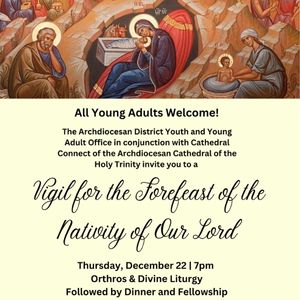 All Young Adults are welcome to participate in a Vigil for the fore feast for the Nativity of our Lord.
All Young Adults are welcome to participate in a Vigil for the fore feast for the Nativity of our Lord. Just in time for the New Year! These calendars are an annual resource published by the Department of Communications of the Greek Orthodox Archdiocese of America.
Just in time for the New Year! These calendars are an annual resource published by the Department of Communications of the Greek Orthodox Archdiocese of America.
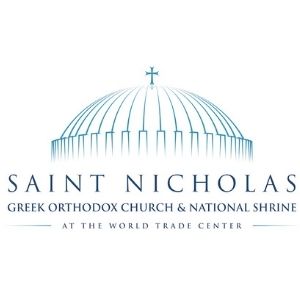 St. Nicholas Greek Orthodox Church and National Shrine held its first services on Sunday evening, December 5, 2022 and Monday, December 6, 2022 to celebrate the Feast Day of its patron saint St. Nicholas.
St. Nicholas Greek Orthodox Church and National Shrine held its first services on Sunday evening, December 5, 2022 and Monday, December 6, 2022 to celebrate the Feast Day of its patron saint St. Nicholas.
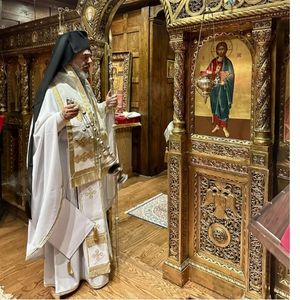 On December 7, 2022, after Divine Liturgy at St. Paul Chapel in the headquarters of the Greek Orthodox Archdiocese of America, Bishop Athenagoras of Nazianzos humbly prayed a memorial service for Elder Ephraim of Philotheou & Arizona of blessed memory, who departed in the Lord three years ago.
On December 7, 2022, after Divine Liturgy at St. Paul Chapel in the headquarters of the Greek Orthodox Archdiocese of America, Bishop Athenagoras of Nazianzos humbly prayed a memorial service for Elder Ephraim of Philotheou & Arizona of blessed memory, who departed in the Lord three years ago.
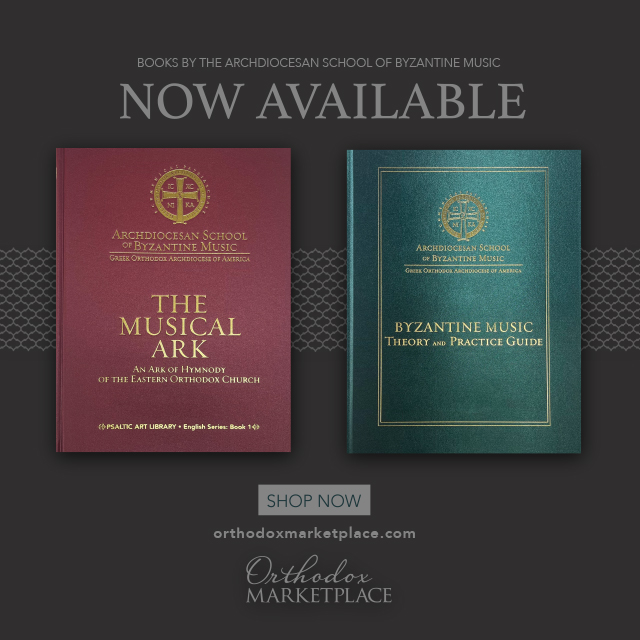 The first book is Byzantine Music: Theory and Practice Guide. The Archdiocesan School of Byzantine Music currently uses this book as an educational tool in the context of the school's curriculum.
The first book is Byzantine Music: Theory and Practice Guide. The Archdiocesan School of Byzantine Music currently uses this book as an educational tool in the context of the school's curriculum.
 The Divine Liturgy Illustrated (ages 5-10) is a publication from the Department of Religious Education (DRE) of the Greek Orthodox Archdiocese of America. It contains the Divine Liturgy of Saint John Chrysostom in Greek and English, according to the current 2015 translation developed by the Greek Orthodox Archdiocese of America, approved by the Eparchial Synod of the Archdiocese, and by the Ecumenical Patriarchate of Constantinople.
The Divine Liturgy Illustrated (ages 5-10) is a publication from the Department of Religious Education (DRE) of the Greek Orthodox Archdiocese of America. It contains the Divine Liturgy of Saint John Chrysostom in Greek and English, according to the current 2015 translation developed by the Greek Orthodox Archdiocese of America, approved by the Eparchial Synod of the Archdiocese, and by the Ecumenical Patriarchate of Constantinople.
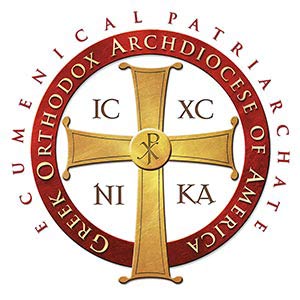 The Department of Greek Education of the Greek Orthodox Archdiocese of America, in cooperation with the Hellenic Book club of New York, cordially invites you to participate in a viewing of the Iconic Hellenic movie “Z”.
The Department of Greek Education of the Greek Orthodox Archdiocese of America, in cooperation with the Hellenic Book club of New York, cordially invites you to participate in a viewing of the Iconic Hellenic movie “Z”.
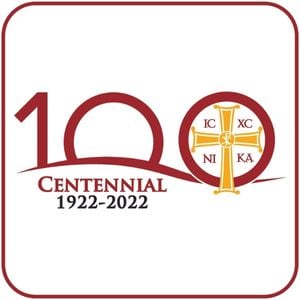 GOARCH Centennial Pilgrims made their way to the Holy Land on Thursday after paying respects to the Mother Church at the Phanar last week.
GOARCH Centennial Pilgrims made their way to the Holy Land on Thursday after paying respects to the Mother Church at the Phanar last week.
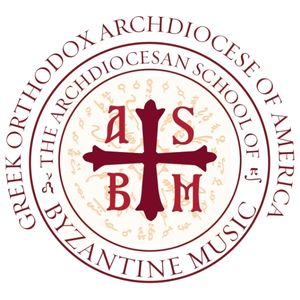 The Archdiocesan School of Byzantine Music is delighted to announce the opening of registration for the Spring Term 2023. Registration is open now until December 15th. Classes are scheduled to begin the week of January 1st and end the week of March 19th.
The Archdiocesan School of Byzantine Music is delighted to announce the opening of registration for the Spring Term 2023. Registration is open now until December 15th. Classes are scheduled to begin the week of January 1st and end the week of March 19th.
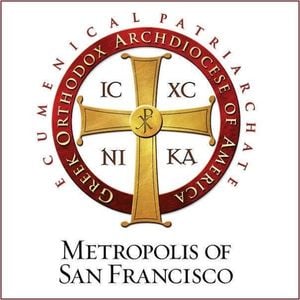 On Saturday, November 12, 2022, Holy Trinity San Francisco and the Greek Orthodox Metropolis of San Francisco hosted a commemorative event honoring the centennial of the Asia Minor Catastrophe.
On Saturday, November 12, 2022, Holy Trinity San Francisco and the Greek Orthodox Metropolis of San Francisco hosted a commemorative event honoring the centennial of the Asia Minor Catastrophe.
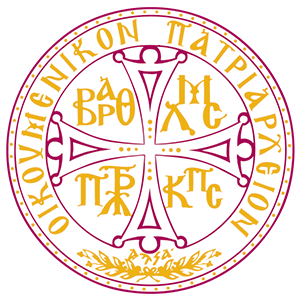 The 11th Academic Consultation between Judaism and Orthodox Christianity took place December 4-6, 2022, in Vienna, Austria. The theme was “Jewish-Orthodox Christian Dialogue: Navigating Our Relations to the World and to Each Other.” The Consultation was co-sponsored by the Ecumenical Patriarchate and the International Jewish Committee for Interreligious Consultations (IJCIC).
The 11th Academic Consultation between Judaism and Orthodox Christianity took place December 4-6, 2022, in Vienna, Austria. The theme was “Jewish-Orthodox Christian Dialogue: Navigating Our Relations to the World and to Each Other.” The Consultation was co-sponsored by the Ecumenical Patriarchate and the International Jewish Committee for Interreligious Consultations (IJCIC).